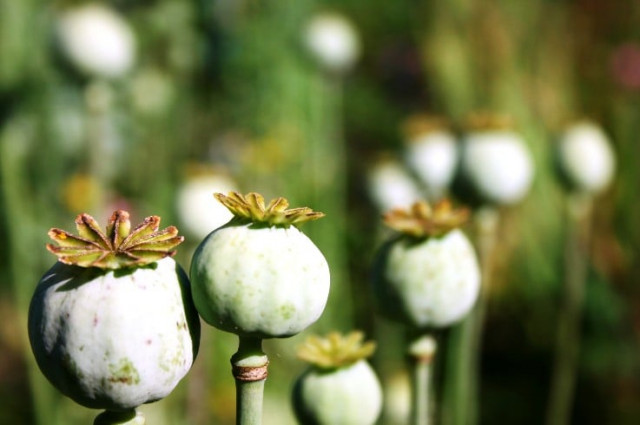Strengthen border controls around Afghanistan to end drug trade: UN
A new study states that curtailing Afghan illegal drug trade would "benefit Afghan people."

Yury Fedotov, Executive Director of UN Office on Drugs & Crime UNODC, said in an introduction to a new study, The Global Afghan Opium Trade - A Threat Assessment, that curtailing Afghan illegal drug trade would "benefit Afghan people, the wider region and the international community as a whole.”
(Read: "The Global Afghan Opium Trade - A Threat Assessment")
Trafficking in Afghanistan is very lucrative, generating some $61 billion in illicit funds in 2009 out of $68 billion for the global illicit opiate trade," the report stated.
"Most of this money went into the pockets of traffickers all along transnational heroin distribution routes, and some went to insurgents." Afghan farmers earn relatively little from the trade, the report noted.
Spanning a decade, the report stated that some 16.5 million people annually abuse opiates worldwide. Heroin takes bulk of the market, with 12 million to 13 million people consuming 375 tons of heroin per year; of that, 150 tons are consumed in Europe.
"Strengthening border controls at the most vulnerable points, such as along Afghanistan's border with Pakistan's Baluchistan province, could help stem the largest flows of heroin, opium and precursor chemicals," Fedotov said.
"Increasing the capacity to monitor and search shipping containers in airports, seaports, dry ports at key transit points and in destination countries could improve interdiction rates," he added.
He also suggested a need for building capacity and fostering intelligence sharing between ports and law enforcement authorities in key countries and regions.
"But addressing supply side and trafficking is not enough," he said.
"We need a balanced approach that gives equal weight to counteracting demand for opiates. This is also part of international community's shared responsibility for global drug problem, heroin-consuming countries need to do more to provide treatment, care and support for drug users to help them kick the habit, and to prevent drug use," Fedotov said.



















COMMENTS
Comments are moderated and generally will be posted if they are on-topic and not abusive.
For more information, please see our Comments FAQ